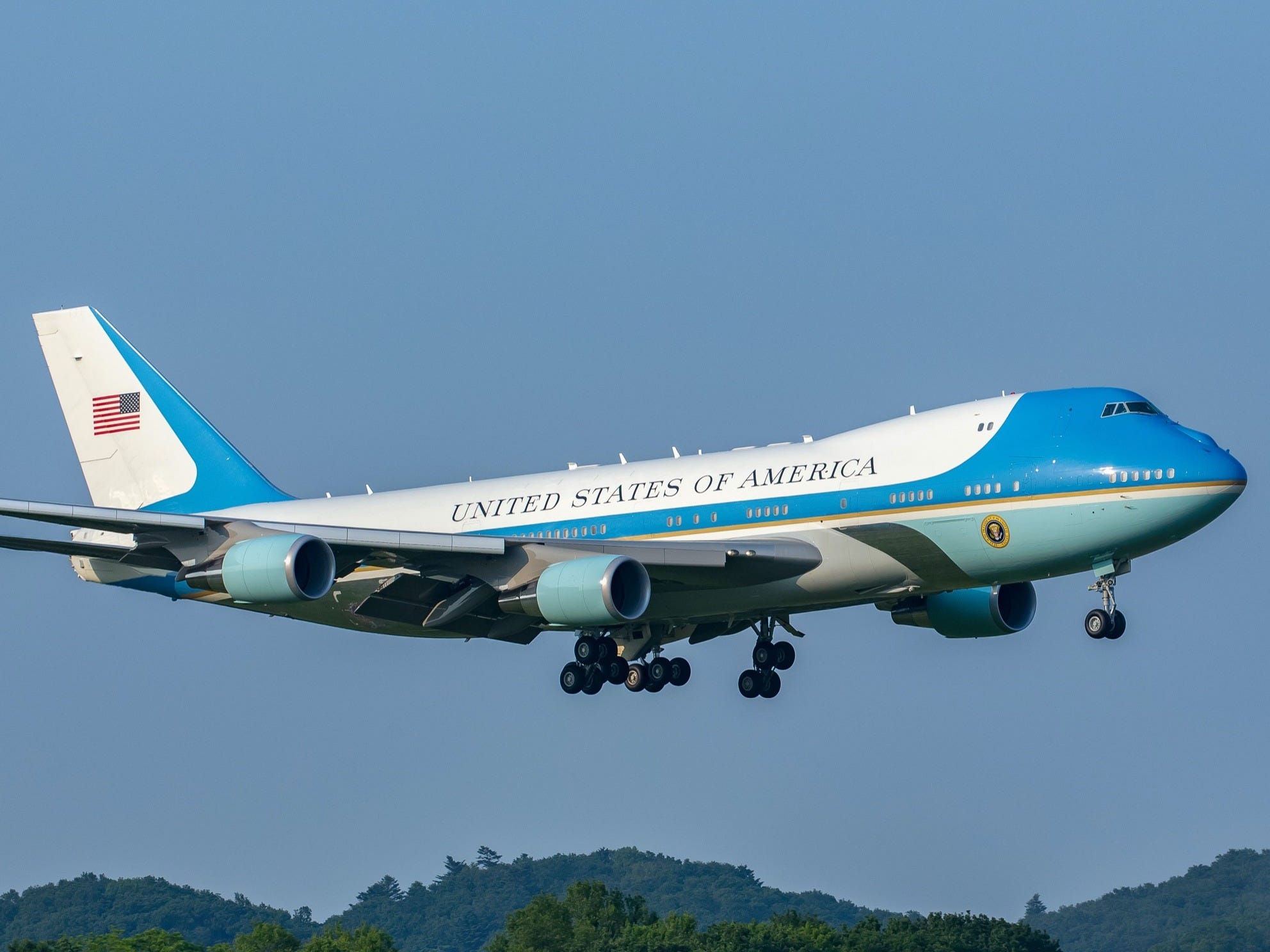- The current Air Force One aircraft are scheduled to be upgraded with the replacements to soon be delivered to Andrews Air Force Base for use by the president and his staff.
- The Boeing 747-8i aircraft will be replacing the aging models first used by President George H.W. Bush in the early 1990s.
- Despite cost-saving efforts by President Donald Trump, the replacement program is still estimated to cost $5.3 billion.
- Visit Business Insider’s homepage for more stories.
The most recognizable plane in the world is getting an upgrade, but it won’t be ready for a few years.
While Air Force One is just a callsign for any Air Force carrying the US president, the term is often used to refer to the pair of iconic blue and white Boeing 747s with “United States of America” emblazoned on the side. From Hollywood to cable news, the current aircraft known as Air Force One have been made famous through frequent appearances when accompanying presidents on most of their trips.
After serving only five presidents for nearly three decades, the current modified Boeing 747s that fly the commander-in-chief – known in the Air Force as VC-25As – are on their way out. In the same way passenger airlines are retiring their older Boeing 747s, it’s time for the flying White House to enter the new jet age with a next-generation aircraft to fly the president, the Boeing 747-8i.
Designated as the VC-25B, the new jet is larger and more efficient than its predecessor. But bigger, in this case, doesn’t necessarily mean better as the new Air Force One will actually be lacking some key features compared to its predecessor, despite the sky-high price tag.
Here's what we know about the highly-confidential program to replace the current Air Force One.
The entire program is costing over $5 billion
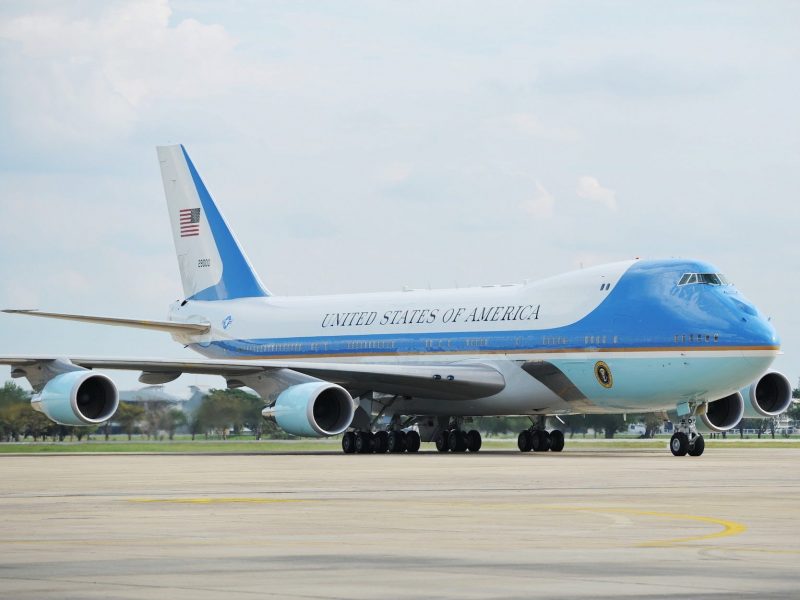
Despite a concerted effort on the part of the Air Force and President Donald Trump's administration, the total program is slated to cost $5.3 billion, according to DefenseOne. That price includes the aircraft purchase - around $800 million if purchased new, which they weren't - as well as the interior completion, special modifications, and a new hangar at Andrews Air Force Base in Maryland.
Trump had gotten the price of the program down from $4.4 billion to $3.9 billion, DefenseOne also reported, but that didn't include everything.
Boeing is keeping the exact cost of the jets a closely guarded secret, according to DefenseOne. The last program to replace the Air Force One aircraft, which began under President Ronald Reagan and was completed during the George H.W. Bush administration, only cost $660 million, the LA Times reported.
The two 747s were supposed to go to a bankrupt Russian airline

Boeing won't be building the new Air Force Ones from scratch and in fact, the Air Force will technically buying the aircraft secondhand. As part of the cost-saving efforts, Boeing sold the government two 747-8i aircraft that were built and intended to be delivered to a now-defunct Russian airline, Transaero, a Boeing spokesperson confirmed to CNN.
"We got a really good deal," former Air Force Secretary Heather Wilson told Bloomberg in an interview.
The jets - which were selling for $390 million at the time of the deal, according to DefenseOne - were stored in California awaiting new owners. They were later flown to Lackland Air Force Base near San Antonio, Texas, according to The Drive.
Boeing presented four alternate options to save costs

The replacement program began under President Barack Obama but his successor would have the most say in the acquisition process. In 2016, a newly-elected Trump publicly complained about the high cost of the replacement program, which he stated was over $4 billion.
"Boeing is building a brand new 747 Air Force One for future presidents, but costs are out of control, more than $4 billion," Trump said in a 2016 tweet. "Cancel order!"
Then-Boeing CEO Dennis Muilenburg met with then-President-Elect Trump at Mar-a-Largo in Palm Beach, Florida to discuss potential alternatives to lower the cost of the program with four options, according to DefenseOne. A $4.2 billion alternative was to purchase two new 747-8i jets but only install the presidential configuration on one and a standard VIP interior on the other while a $3.88 billion option involved only buying one new 747-8i and keeping one of the existing 747s.
Less expensive alternatives also included buying two new 747-8i aircraft but eliminating some of the Air Force's requirements or just installing VIP interiors instead of the presidential configuration demanded by the Air Force. All proposals were flatly rejected by the service branch, according to DefenseOne.
Expect a new paint job

Air Force One is the most recognizable plane in the world thanks to its stunning blue and white paint job but the new jets will be getting a makeover thanks to Trump, who first expressed his desire to repaint the planes in a 2018 CBS News interview. The new design features more red, white, and blue compared to the current model.
Trump keeps a model of the jet with the new design in the Oval Office for visitors to see. It's unclear whether the other VIP Air Force jets painted in the timeless blue and white livery will be updated.
The owner's manual alone is costing $84 million

The Air Force announced in April that Boeing will develop the owner's manual for the new VC-25B aircraft and the service branch is paying $84 million for it, DefenseOne reported. The manual will reportedly contain over 100,000 pages and won't even be ready at the time of the jet's estimated delivery to the Air Force, with DefenseOne reporting that it will arrive in January 2025.
The $84 million is included in the $5.3 billion project cost.
They'll last for around three decades
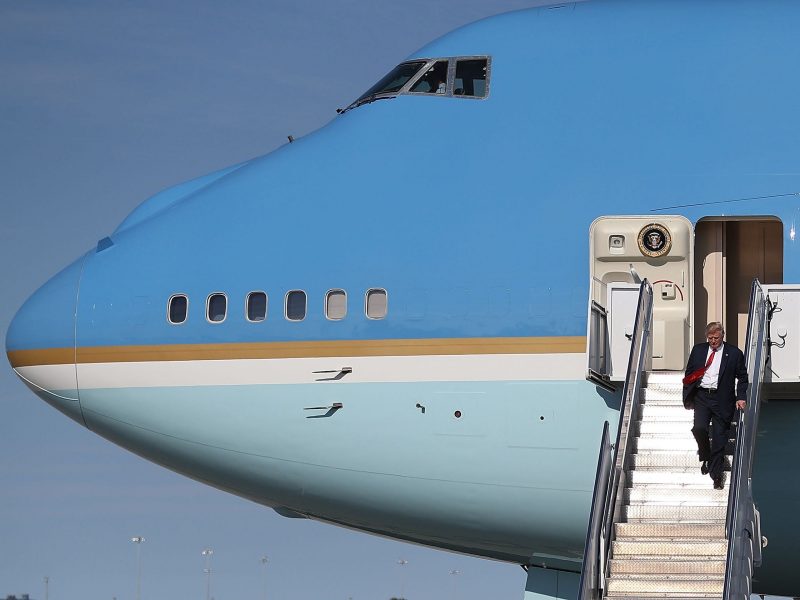
Like most aircraft, the new planes will only last between 20 to 30 years, according to DefenseOne. The current VC-25A aircraft are scheduled to be replaced just over three decades from their first flights with Bush in 1990 and 1991.
With Boeing reportedly ending the 747 program, the timing is in line with when most Jumbo Jets will be retired from passenger airlines and cargo carriers around the world. If the manufacturer stays the course and doesn't develop a new two-level, four-engine plane, the next flying White House may be a downgrade to a smaller jet like the Boeing 777X.
It can fly nonstop to nearly every populated continent from Washington but can't refuel in-air
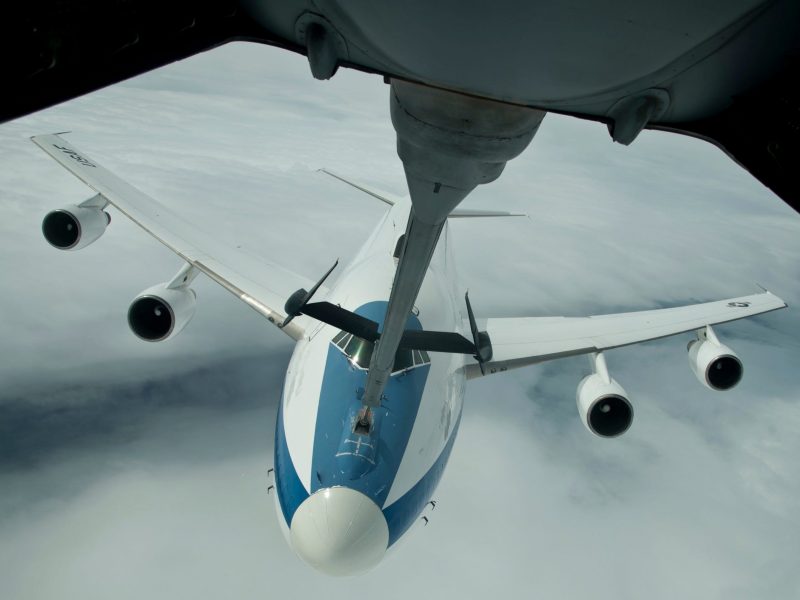
The new VC-25Bs will have a range of 5,900 nautical miles, which is both less than some private jets from Gulfstream and Bombardier and the current Air Force One's range of unlimited miles. That's because the VC-25As have the capability of air-to-air refueling that allows them to fly for as long as the president desires while receiving top offs from airborne fuel tankers.
It's an impressive capability that can keep the president flying should there be no place to land, like in the event of war. But the feature has never been used, Air Force sources told DefenseOne, except in the Hollywood movie "Air Force One."
The 5,900-nautical mile range, however, should allow the president to fly nonstop from Washington to far locales like Tokyo, Riyadh, and Tel Aviv.
It's bigger but more efficient
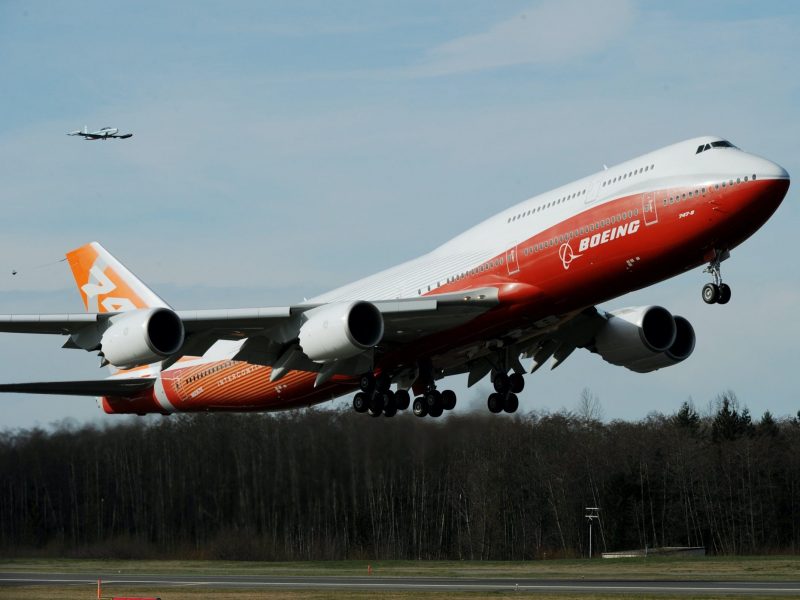
One of the staples of the Boeing 747-8i is its next-generation engines for General Electric that are more fuel-efficient than the aging engines on the current Air Force One aircraft. Flying the new aircraft will save the Air Force $1.9 billion, according to DefenseOne, despite the larger square footage that the 747-8i provides.
Despite the larger size, however, the VC-25Bs will have the same passenger capacity of 71 passengers, according to The Drive. That means more room for non-passenger spaces like the president's office, communications bay, medical suite, or the private bedroom.
Trump may not be the first passenger
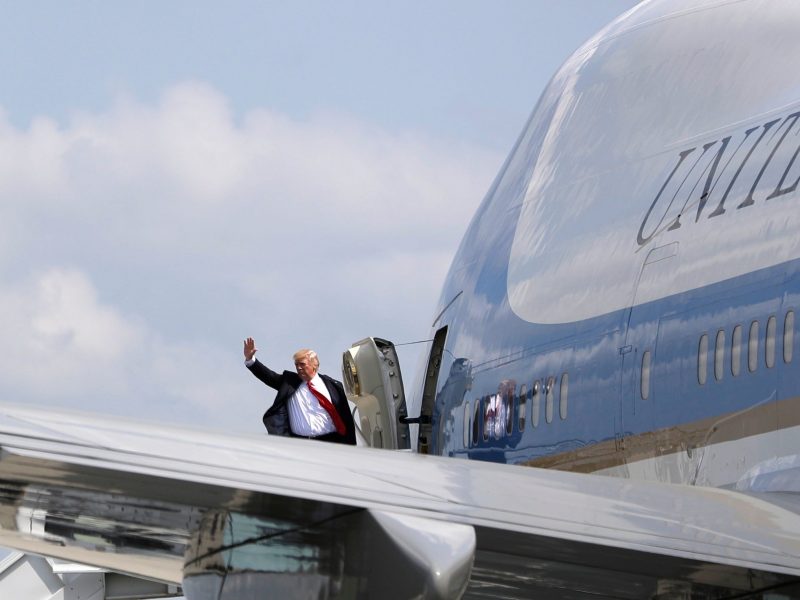
The jets are scheduled to enter service in 2024 meaning that the winner of the 2020 election will be the first commander-in-chief to fly aboard the new Air Force One. Despite all his input and efforts to keep costs down on the project, Trump may never step foot on it unless he wins the 2020 general election in November.
Should he succeed in the re-election effort, Trump will also have just a few months before the 2025 inauguration of his successor to fly on the plane before it takes him home to Florida on January 20.

